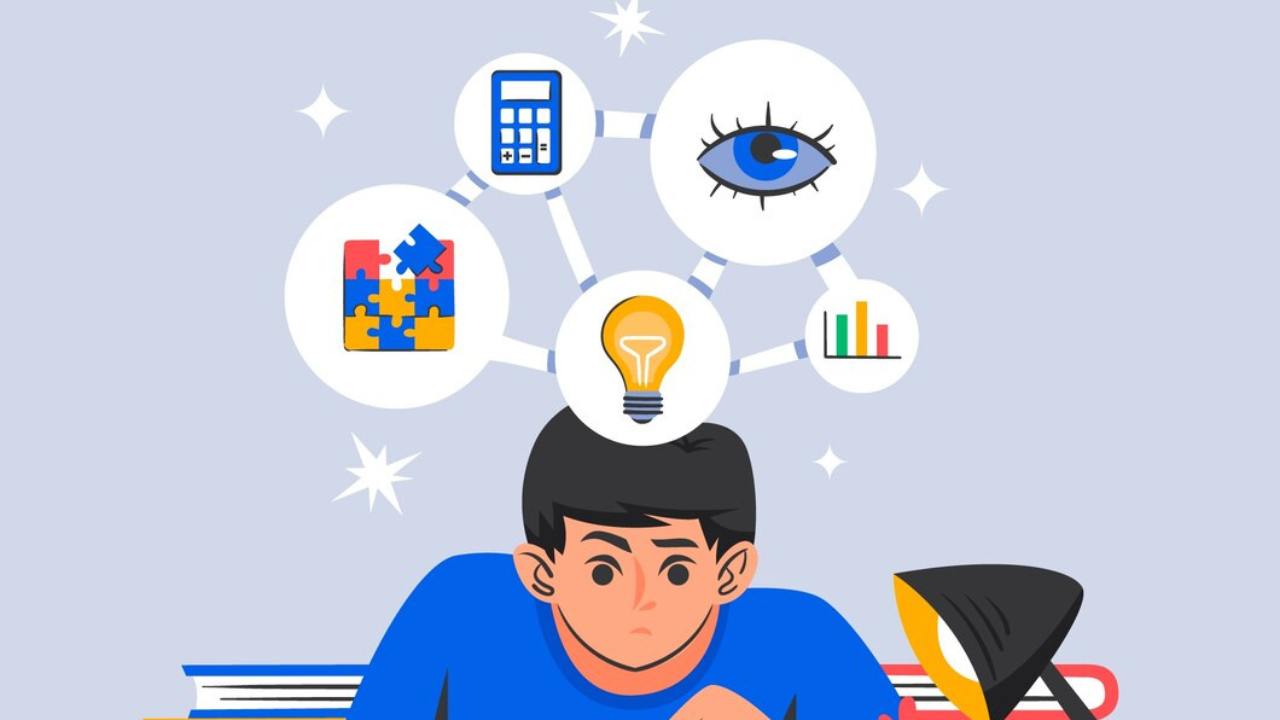
How to Study Smarter, Not Harder: 10 Proven Student Habits
Success in academics isn’t about how many hours you study but how effectively you use that time. Many students struggle with long, exhausting study sessions that yield minimal results. The key is to adopt smart study habits that improve retention, boost focus, and maximize productivity. Techniques like active recall, time management, and strategic breaks help students learn faster and retain information longer. Developing the right habits can make studying less stressful and more efficient, leading to better academic performance with less effort.
1. Why Studying Smarter Matters More Than Studying Harder
Long study hours don’t guarantee success—efficient techniques do. Smart studying improves retention, saves time, and reduces stress. Techniques like active recall, spaced repetition, and focused study sessions help students grasp concepts faster. Instead of cramming, breaking study sessions into structured, manageable parts leads to better understanding, stronger focus, and improved exam performance. Mastering these habits ensures long-term academic and professional success.
2. How to Set Clear Goals for Effective Learning
Successful students don’t study aimlessly—they set clear, achievable goals. Having a defined target helps improve focus, track progress, and stay motivated. Instead of vague goals like “I need to study math,” break them down into specific tasks such as “I will complete 10 algebra problems in 30 minutes.” Setting SMART goals (Specific, Measurable, Achievable, Relevant, Time-bound) ensures efficiency. Prioritizing topics based on difficulty and upcoming exams helps streamline efforts, making studying more structured and productive.
3. What Are the Best Techniques for Retaining Information?
Memorizing without understanding leads to forgetfulness, but using the right techniques improves retention. Active recall (testing yourself instead of passive reading) strengthens memory, while spaced repetition (reviewing information at intervals) prevents forgetting. Summarizing concepts in your own words, using mind maps, and teaching others also boost comprehension. Instead of cramming, focusing on these methods ensures deeper understanding and long-term knowledge retention.
4. How to Manage Time and Avoid Procrastination?
Effective time management prevents last-minute stress and improves productivity. The Pomodoro Technique (25-minute focused study sessions with 5-minute breaks) helps maintain concentration. Using a to-do list or planner ensures tasks are organized and prioritized. Setting deadlines for each study session creates accountability while avoiding distractions like social media keeps focus intact. Breaking large tasks into smaller, manageable parts makes studying less overwhelming and helps in staying consistent.
5. Why a Well-Structured Study Plan Boosts Productivity?
A structured study plan eliminates confusion and maximizes efficiency. Instead of randomly picking subjects, organizing study sessions based on priority and difficulty helps maintain balance. Allocating specific time slots for each subject ensures consistent progress. Rotating subjects prevents monotony while setting aside time for revision strengthens retention. A well-planned schedule prevents last-minute cramming and makes learning more systematic and stress-free.
6. How Does Your Study Environment Affect Learning?
A distraction-free environment enhances focus and productivity. Studying in a quiet, well-lit space with minimal interruptions helps retain information better. Keeping study materials organized prevents time wastage while eliminating distractions like social media improves concentration. Some students focus better with soft background music, while others prefer silence—finding what works best is key. Using digital tools like productivity apps can also help create an efficient learning space.
7. Why Do Short Breaks Improve Focus and Retention?
Studying for long hours without breaks leads to mental fatigue and reduced concentration. Short, strategic breaks help refresh the mind and improve retention. Techniques like the Pomodoro Method (25 minutes of study followed by a 5-minute break) enhance focus. Engaging in light activities like stretching, walking, or deep breathing prevents burnout. Breaks also allow the brain to process information effectively, making study sessions more productive.
8. How Do Lifestyle Choices Impact Academic Success?
Good study habits aren’t enough—a healthy lifestyle plays a crucial role in academic performance. Quality sleep improves memory and concentration, while a balanced diet fuels brain function. Regular exercise enhances focus and reduces stress, making learning more effective. Hydration and mindfulness practices like meditation also boost cognitive abilities. Prioritizing physical and mental well-being ensures students stay energized, motivated, and ready to absorb new information.
9. How to Stay Motivated and Avoid Burnout?
Consistency matters more than intensity, and staying motivated is key to long-term success. Setting small, achievable goals keeps progress measurable and rewarding. Mixing up study methods, like group discussions or visual learning, prevents monotony. Taking breaks, celebrating small wins, and maintaining a healthy study-life balance reduce burnout. Avoiding perfectionism and focusing on steady improvement helps sustain motivation and prevents exhaustion.
10. What Are the Key Takeaways for Long-Term Academic Success?
Success in academics isn’t about studying longer but studying smarter. Setting clear goals, using active learning techniques, managing time effectively, and maintaining a structured study plan are essential habits. A distraction-free environment, regular breaks, and a healthy lifestyle further enhance focus and retention. Staying motivated and avoiding burnout ensures consistent progress. By adopting these habits, students can achieve better results with less stress while developing skills that extend beyond academics.
Final Thoughts
Studying smarter leads to better retention, less stress, and improved academic performance. By setting clear goals, using effective learning techniques, and maintaining a balanced routine, students can achieve success without burnout. The key is consistency over intensity—small, smart changes in study habits can make a big difference in long-term learning and growth.